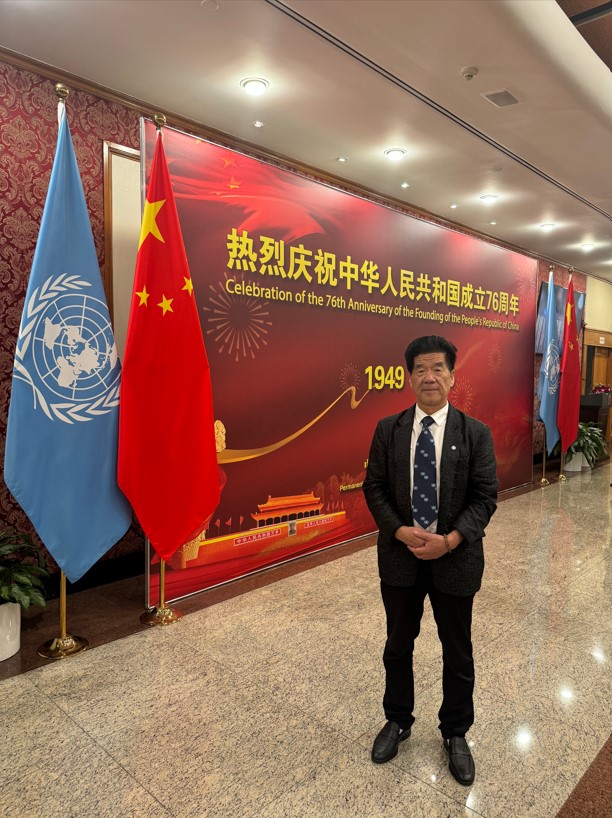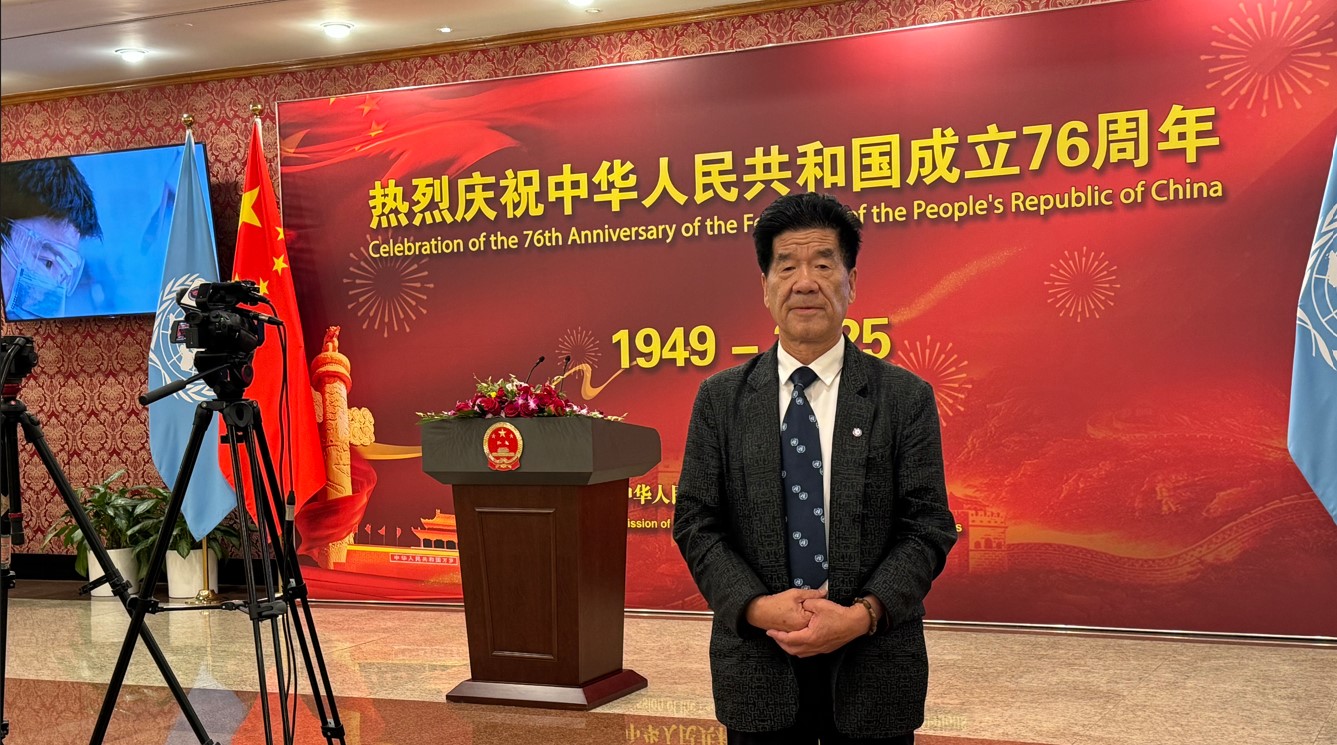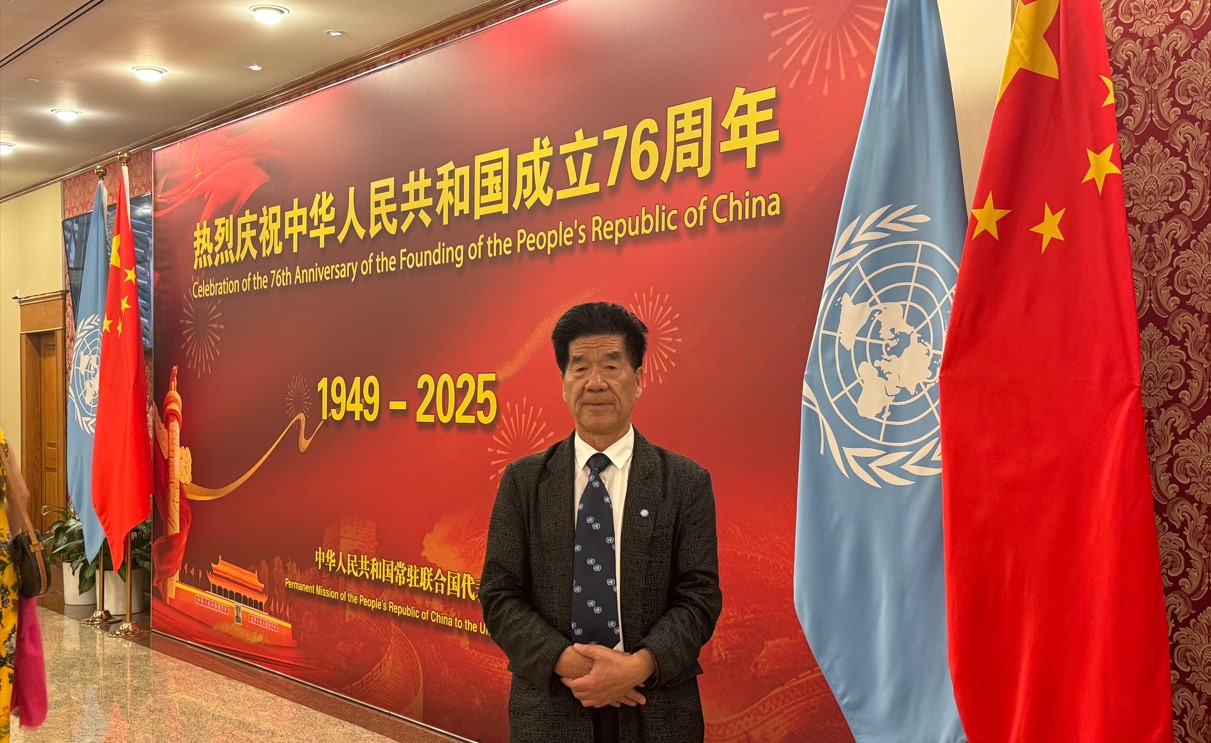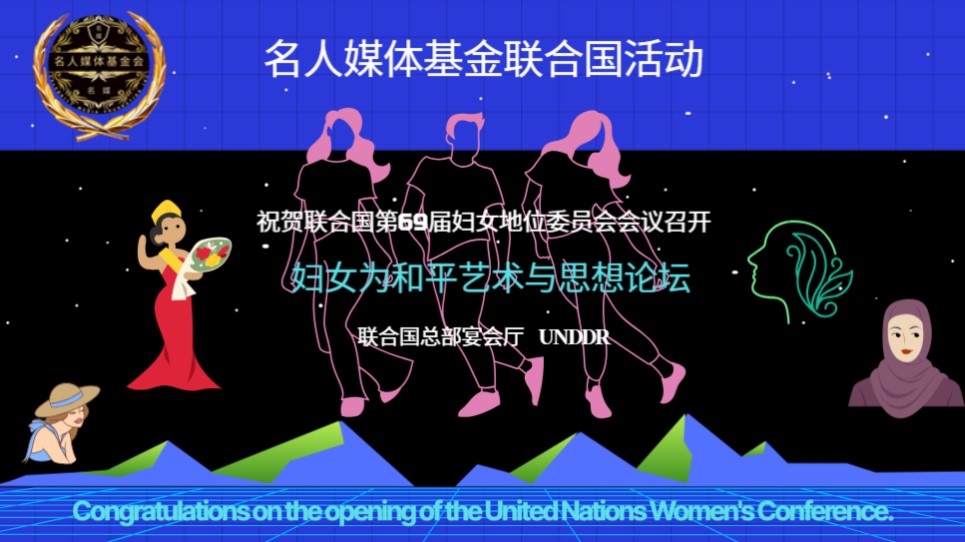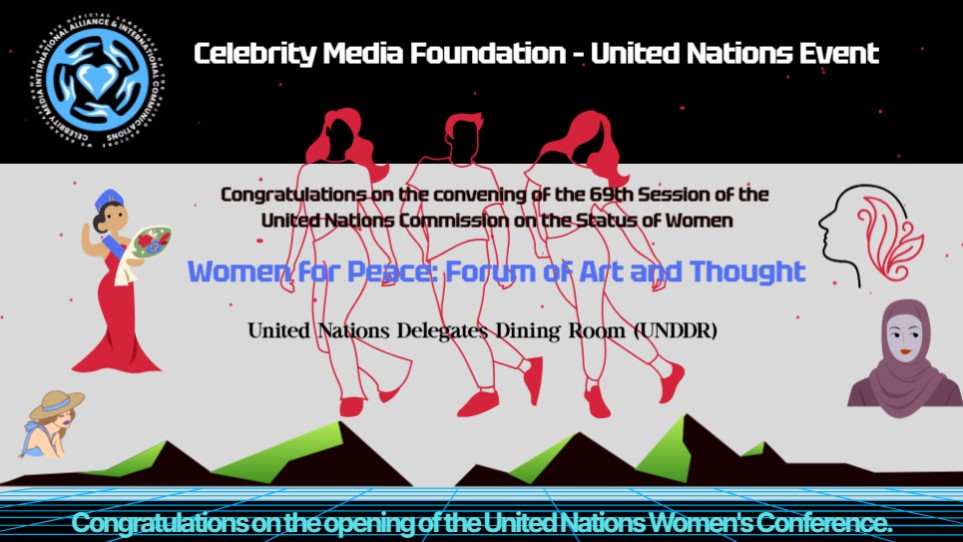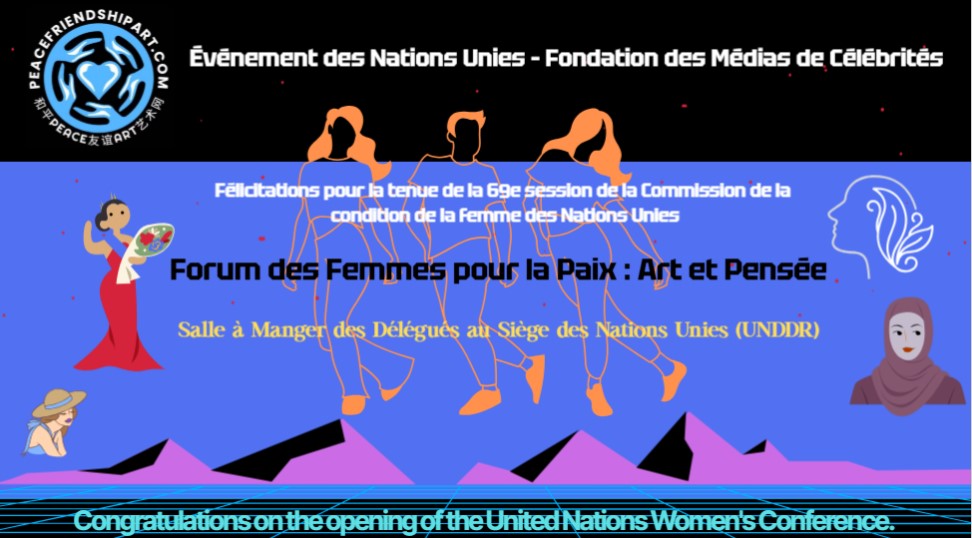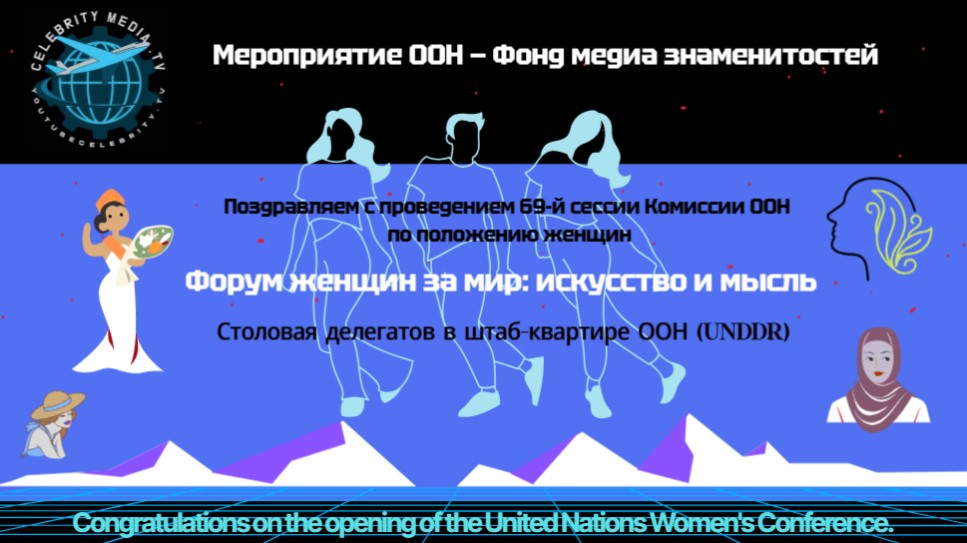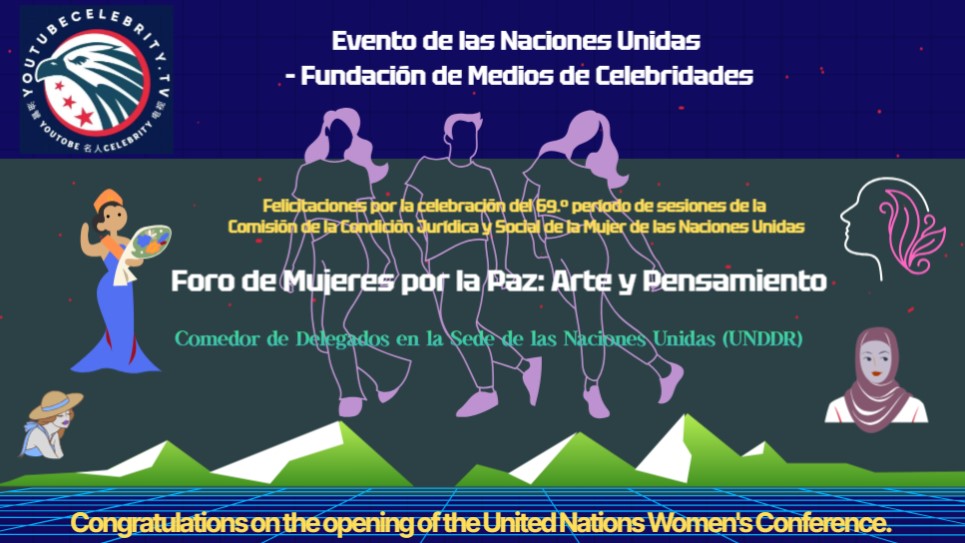Click here for related report
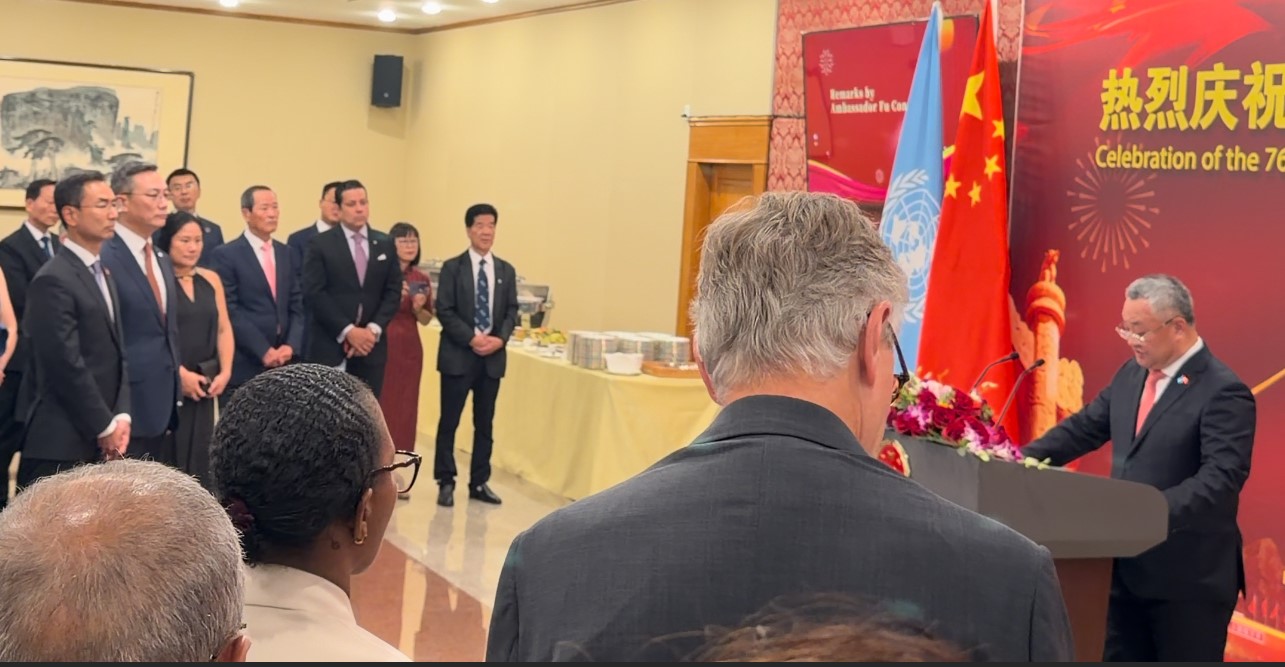
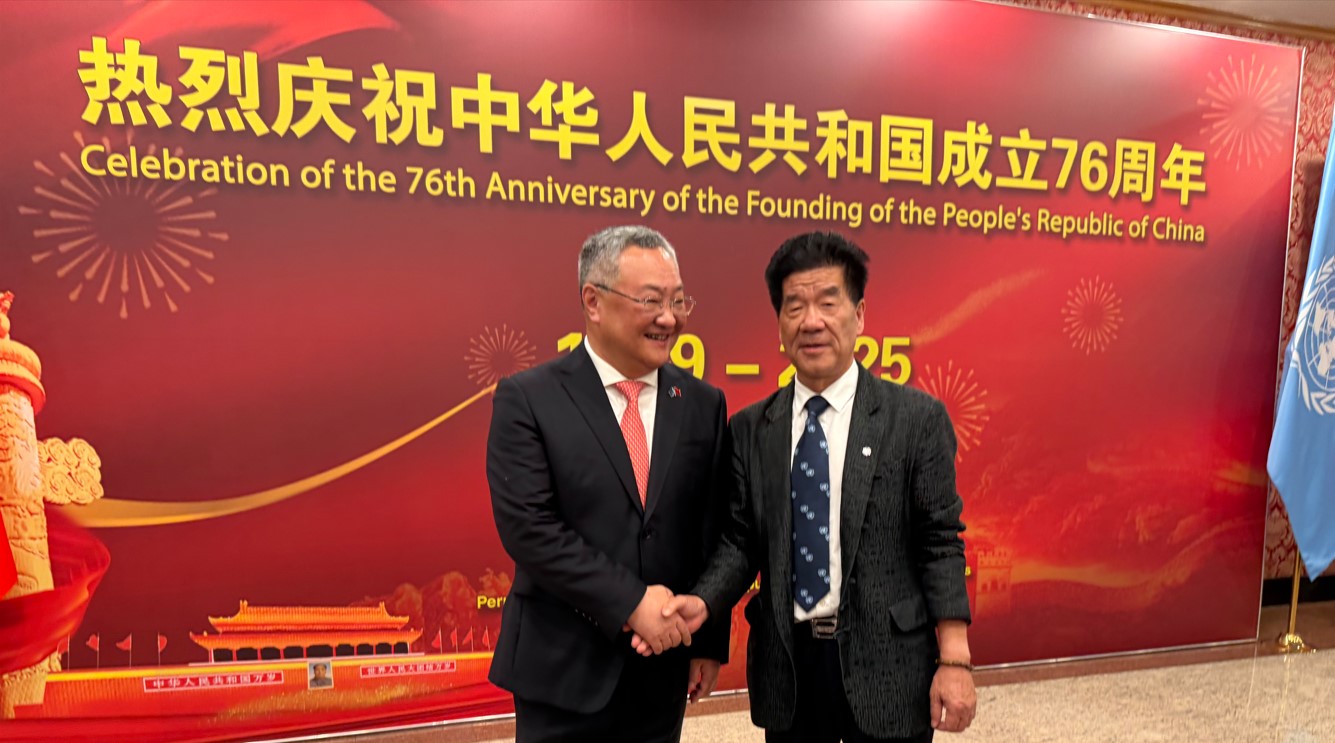 Chinese Ambassador to the UN Fu Cong shakes hands with calligrapher Li Guiming
Chinese Ambassador to the UN Fu Cong shakes hands with calligrapher Li Guiming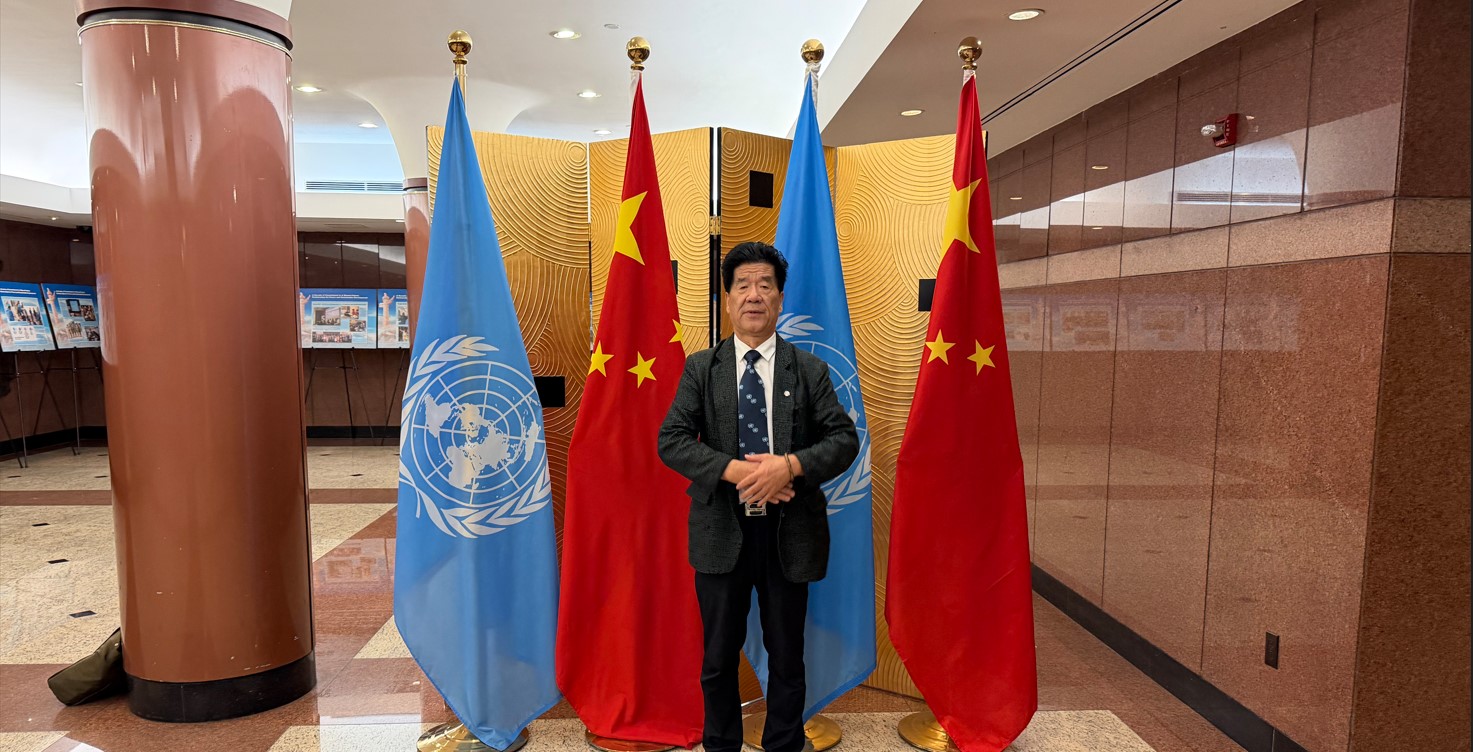
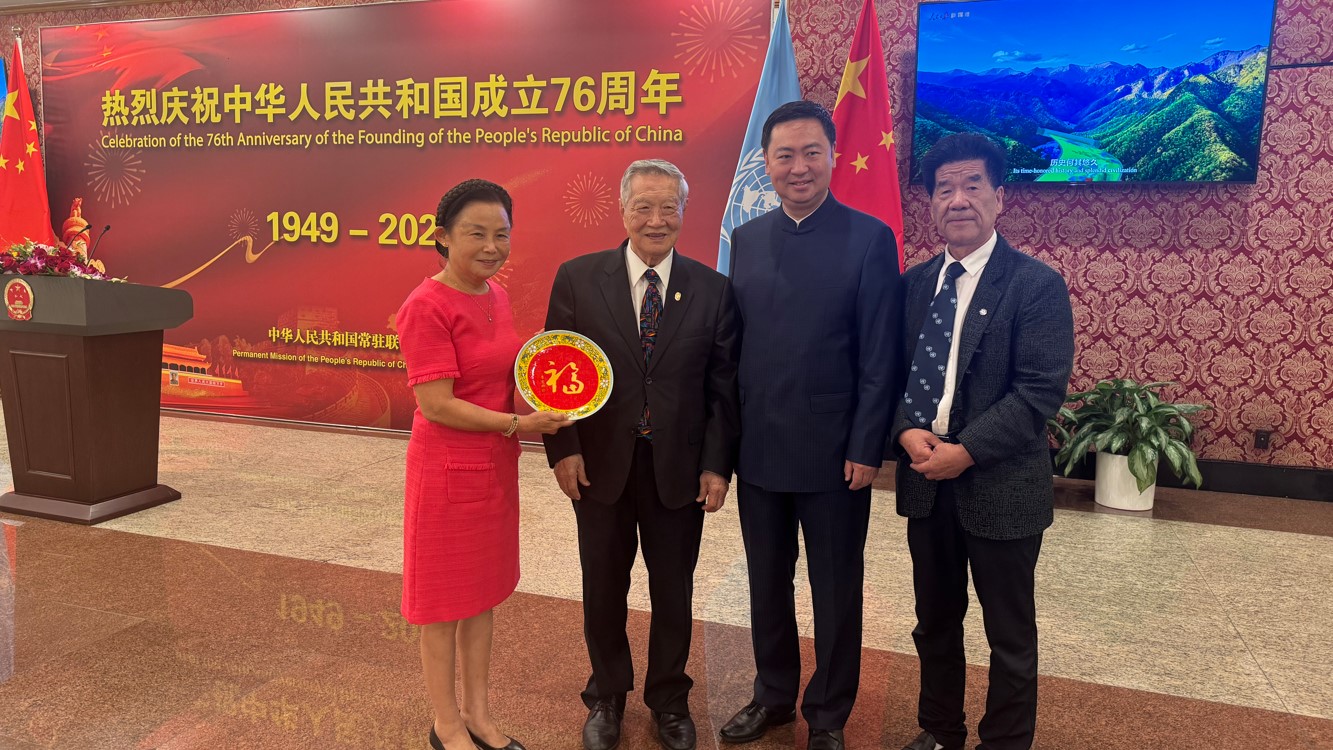
Calligraphy and Diplomacy, Deeper Meaning in the Scent of Ink: When Ambassador Fu Cong conversed with calligrapher Li Guiming, it was not only a friendly interaction between two individuals but also a cross-boundary fusion of art and diplomacy. At the Chinese National Day Reception at the UN, Li Guiming presented the auspicious character “Fu.” As an ambassador for Fu culture, his natural gesture conveyed the blessings and goodwill of Chinese culture to guests from over 100 countries, showcasing the beauty and power of cultural exchange. The ink fragrance of Fu carried the Chinese people’s wishes for peace and a good life, becoming an “unofficial language” that transcends borders.
 Please click the image above to view the UN News Center interview report
Please click the image above to view the UN News Center interview report
As sharply observed by Egyptian-American journalist Ahmed Fathi, Editor-in-Chief of ATN Television, who recently interviewed calligrapher Li Guiming at the UN News Center: Art has never been a peripheral part of diplomacy, but a bridge for dialogue. He linked Li Guiming’s calligraphy with the UN Sustainable Development Goals, highlighting the diplomatic potential of such cultural symbols and reminding people that amid complex international agendas, culture can also foster peace and cooperation.
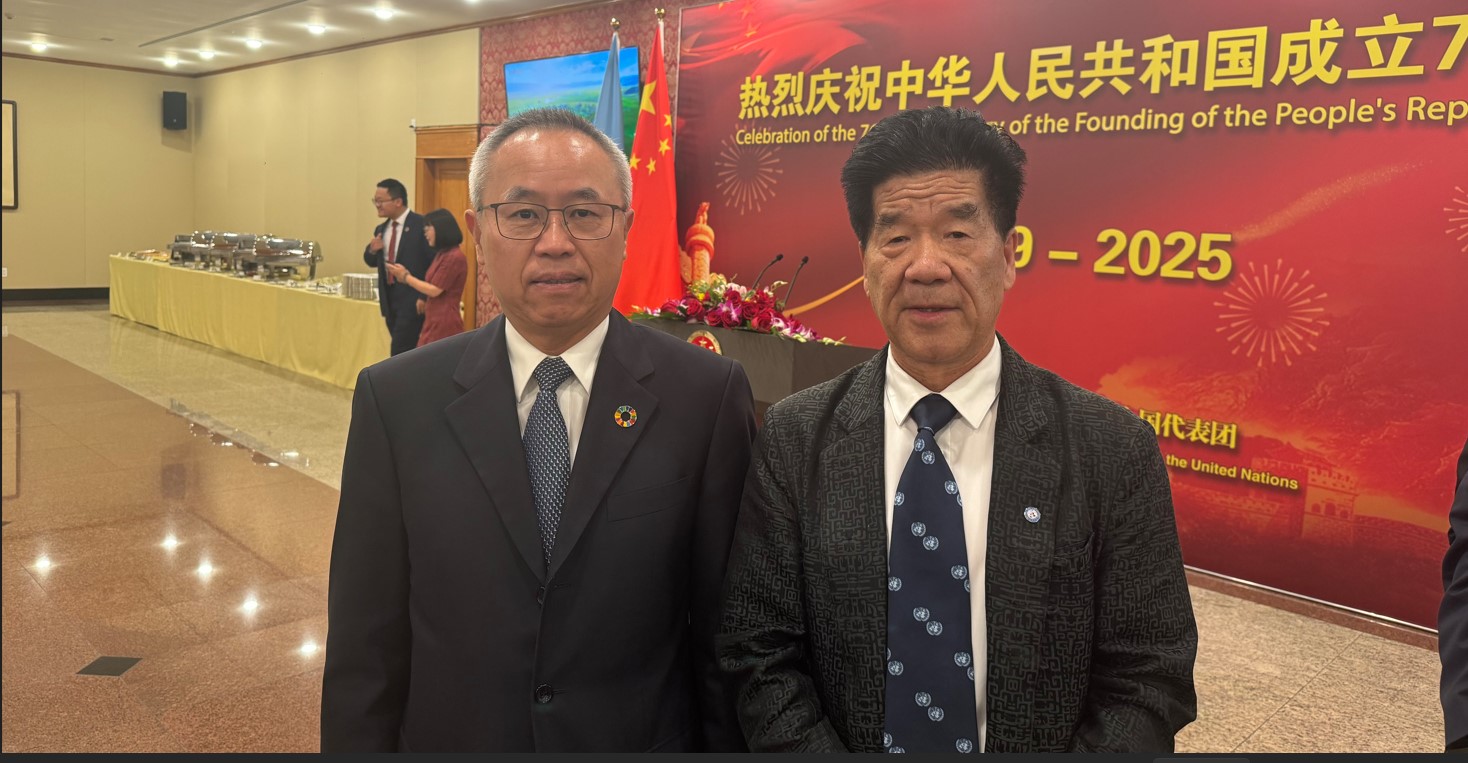 UN Under-Secretary-General for Economic and Social Affairs Li Junhua
UN Under-Secretary-General for Economic and Social Affairs Li Junhua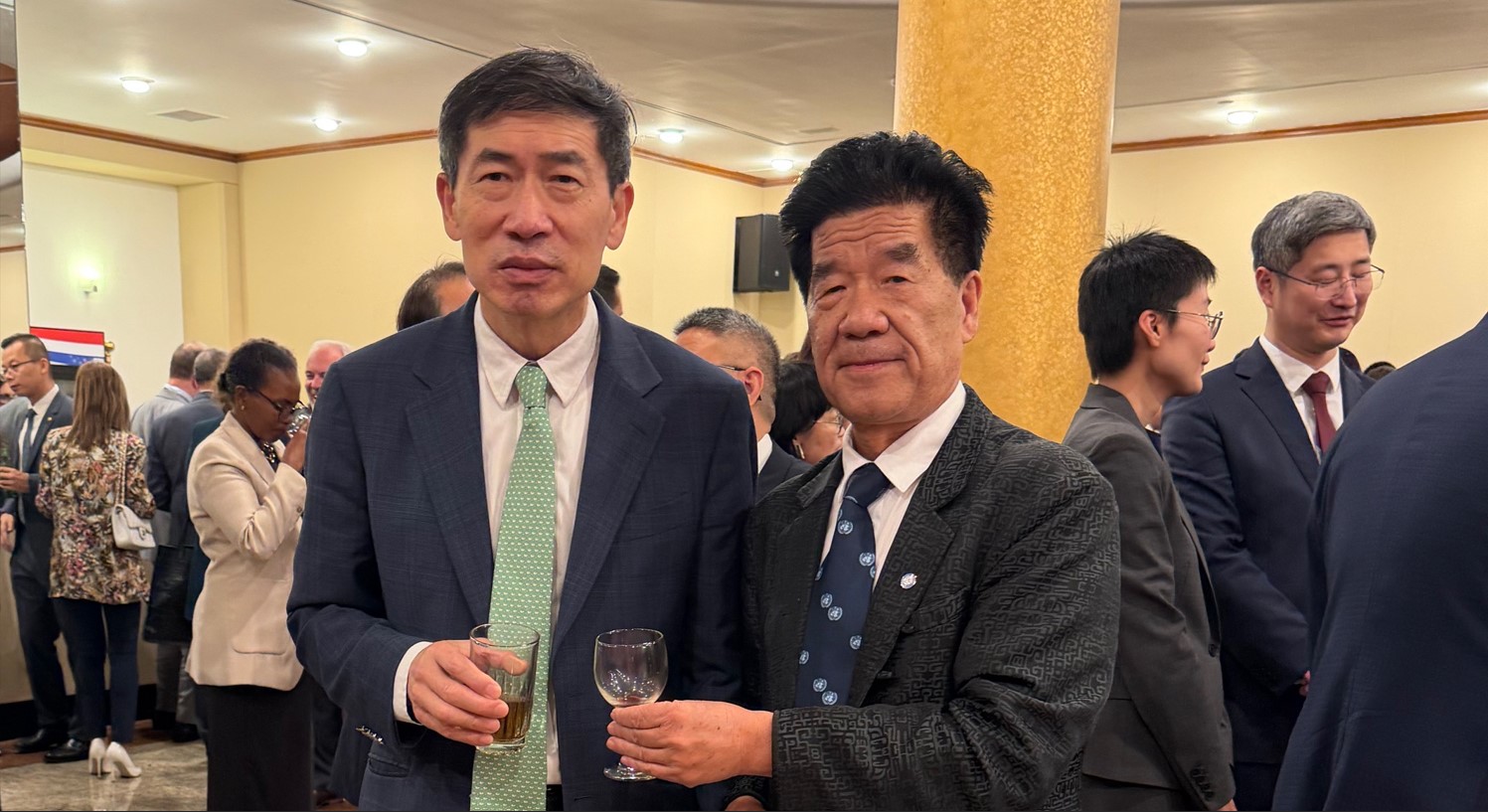 UN Deputy Secretary-General and UNDP Acting Administrator Xu Haoliang
UN Deputy Secretary-General and UNDP Acting Administrator Xu Haoliang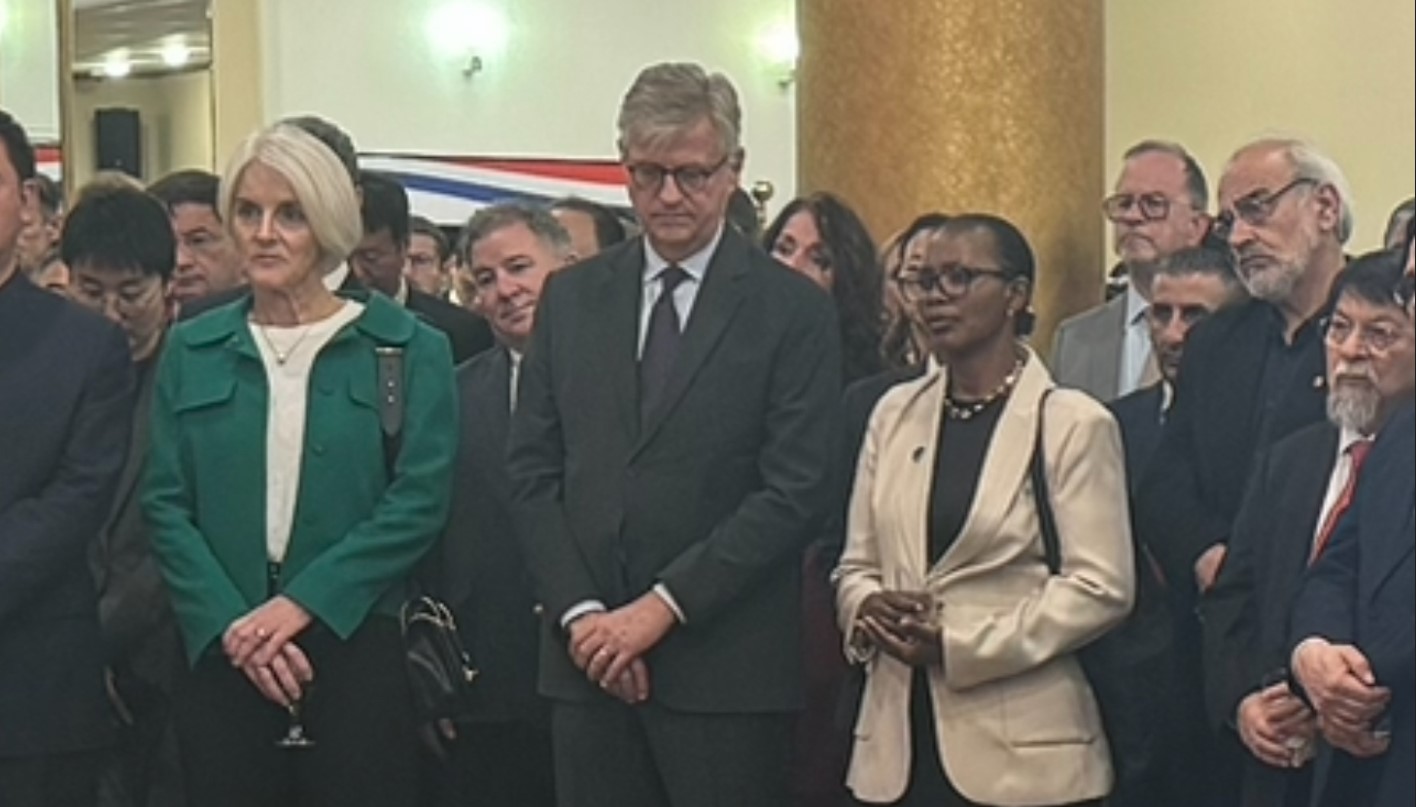 UN Under-Secretary-General for Peace Operations Jean-Pierre Lacroix (who just visited China on September 16 this year)
UN Under-Secretary-General for Peace Operations Jean-Pierre Lacroix (who just visited China on September 16 this year)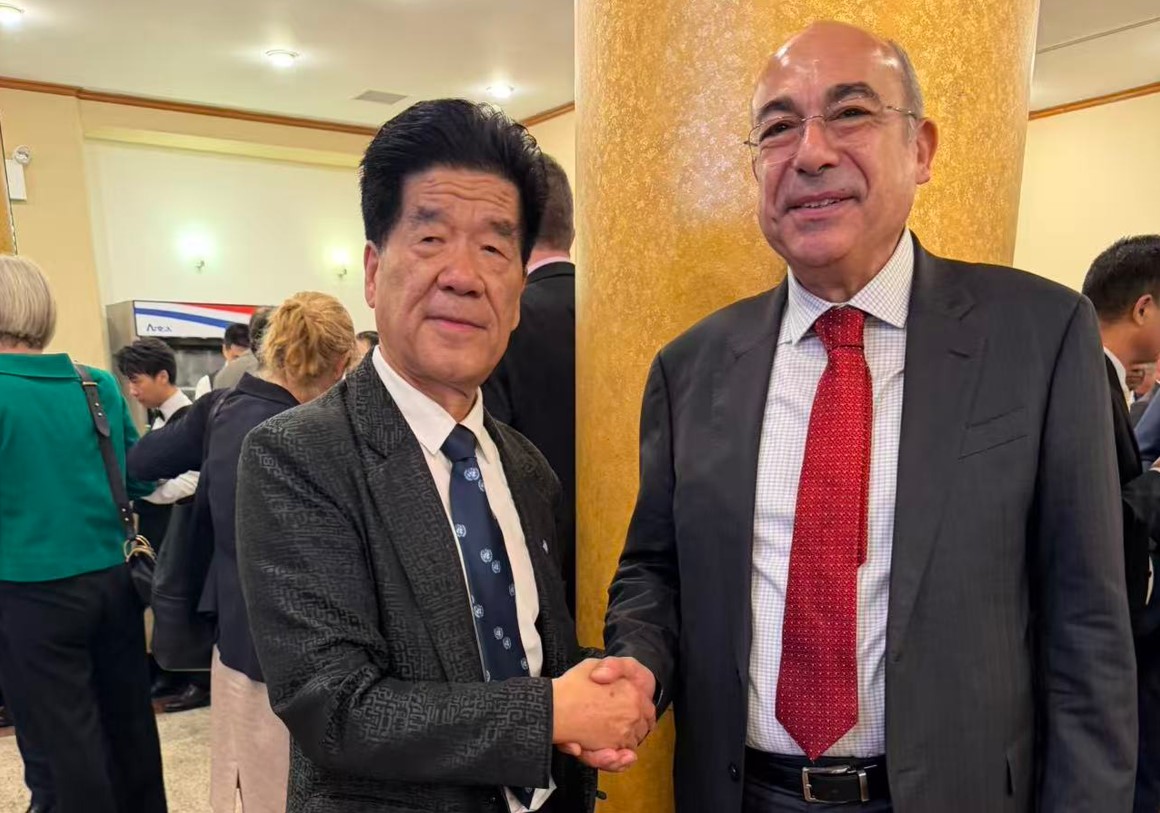
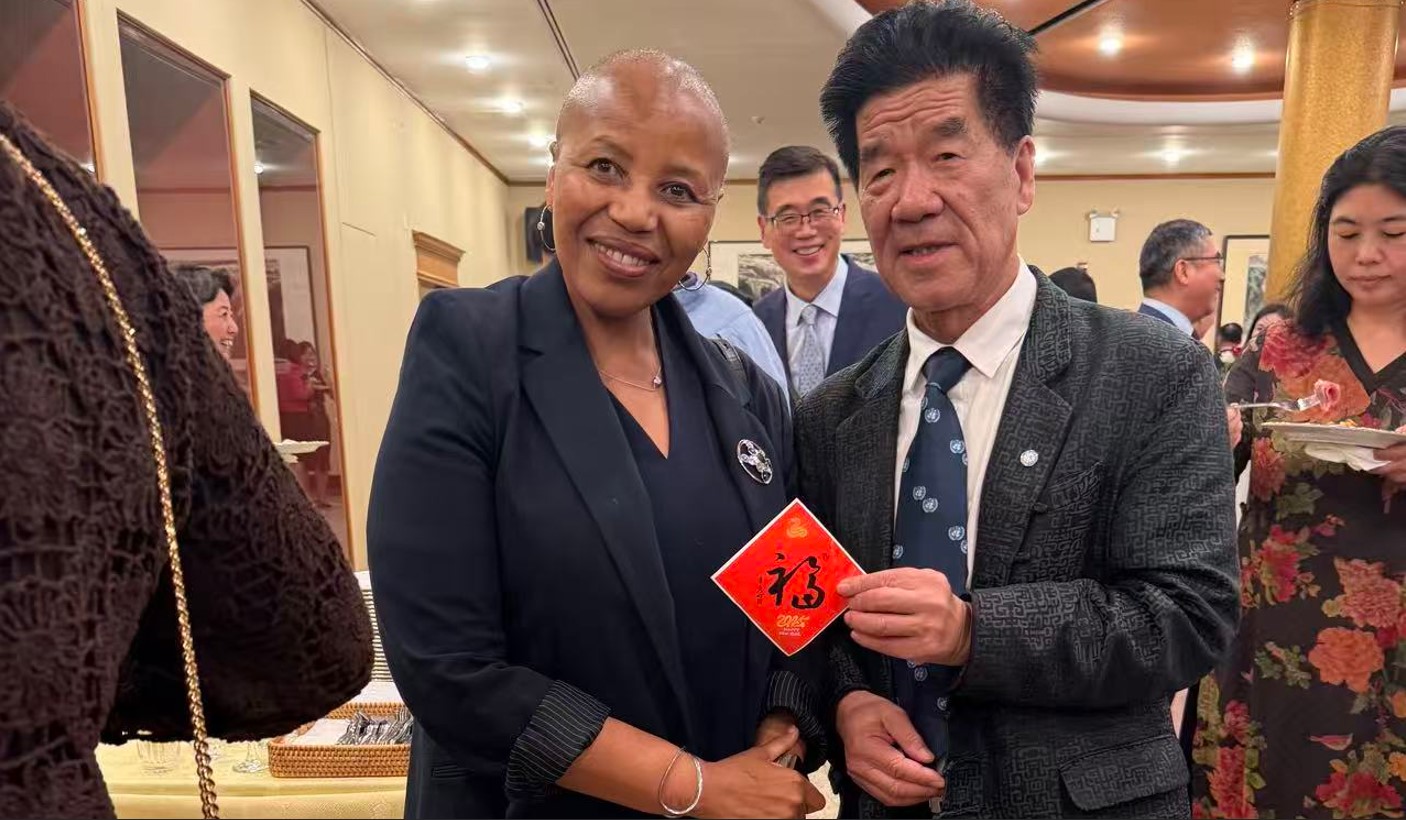
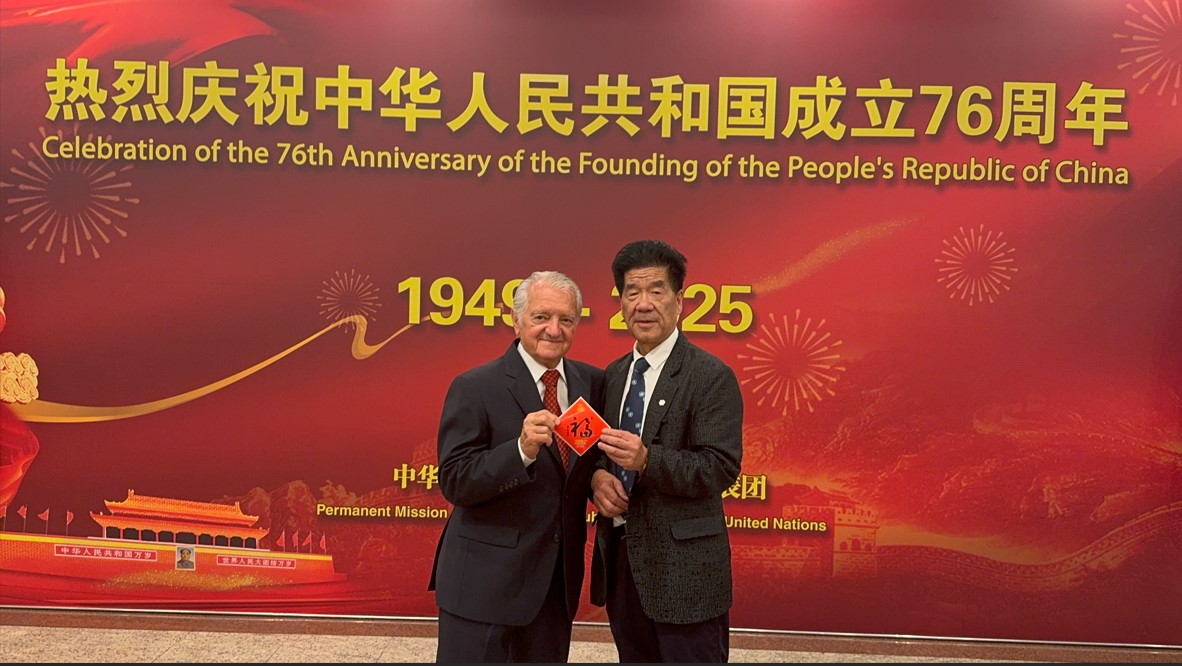
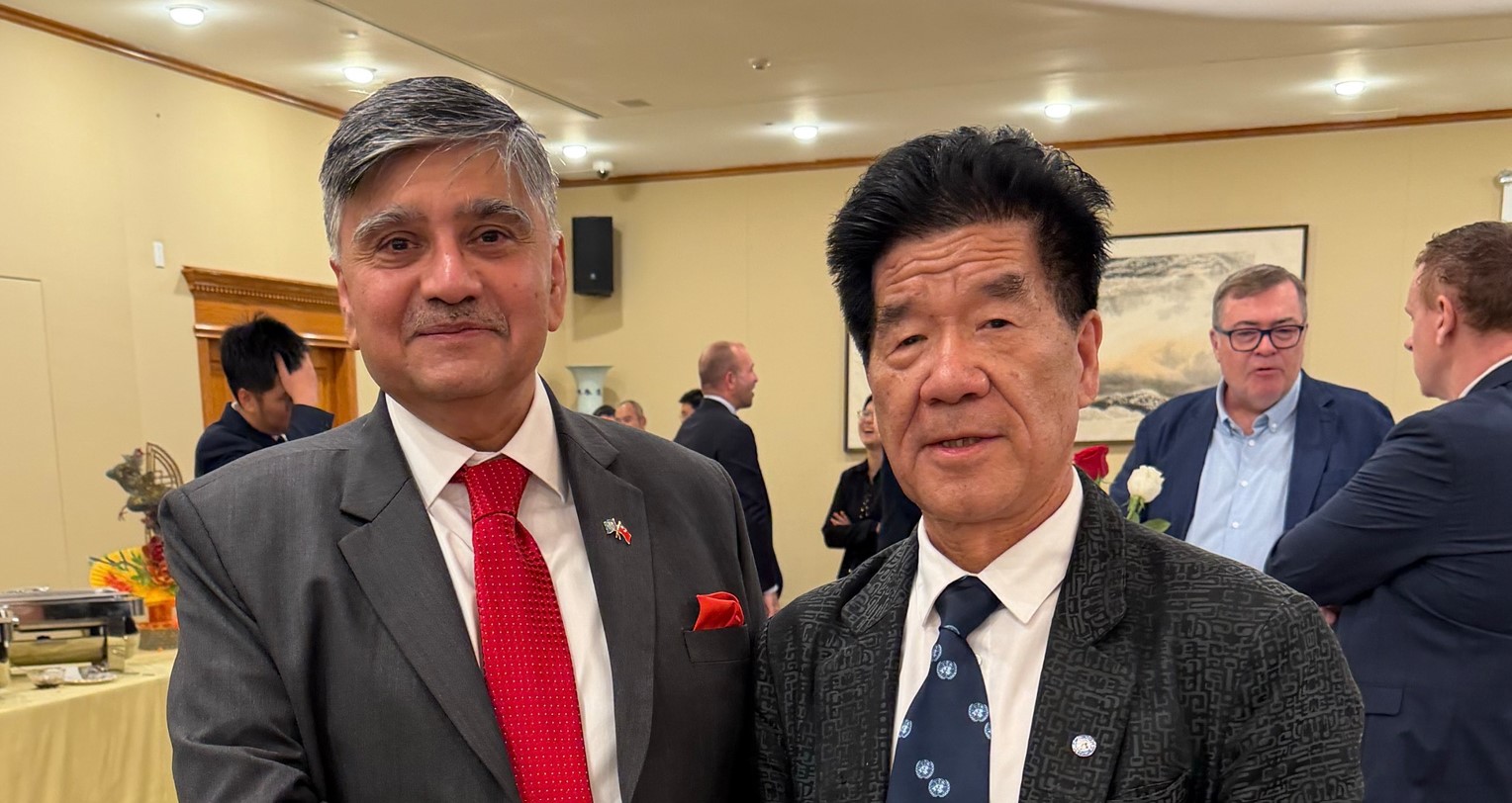
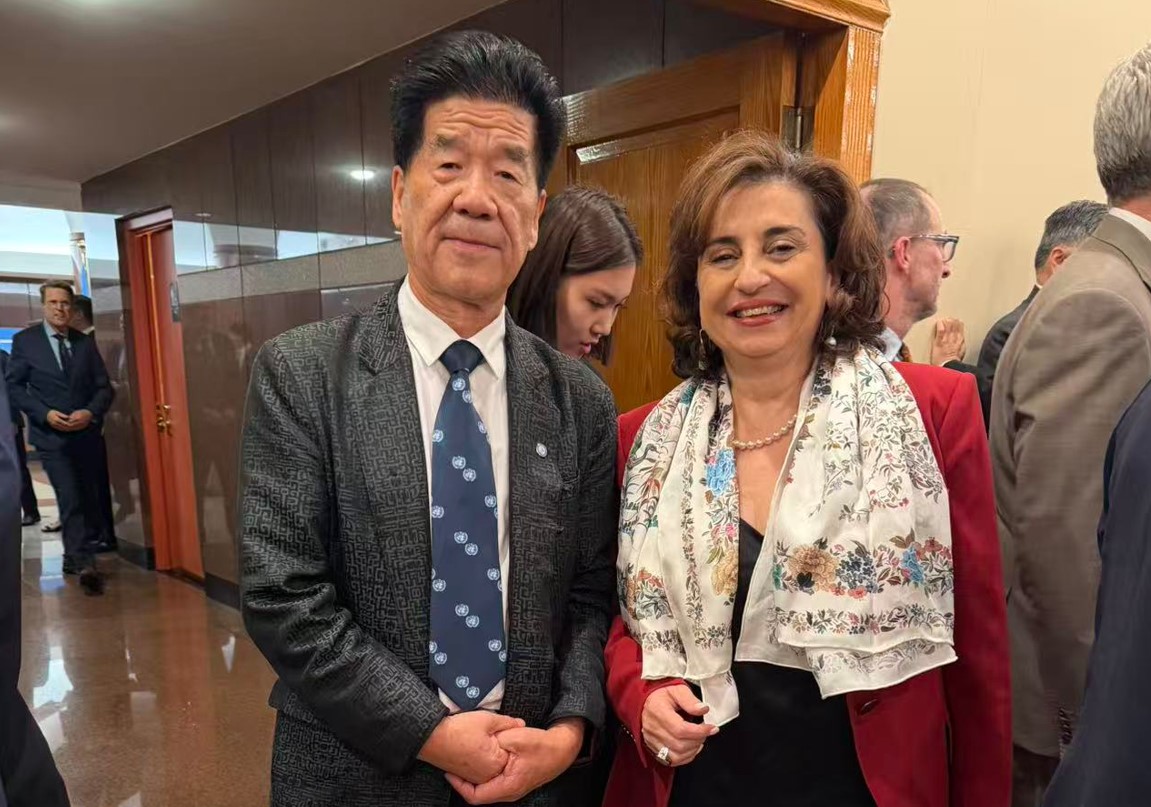
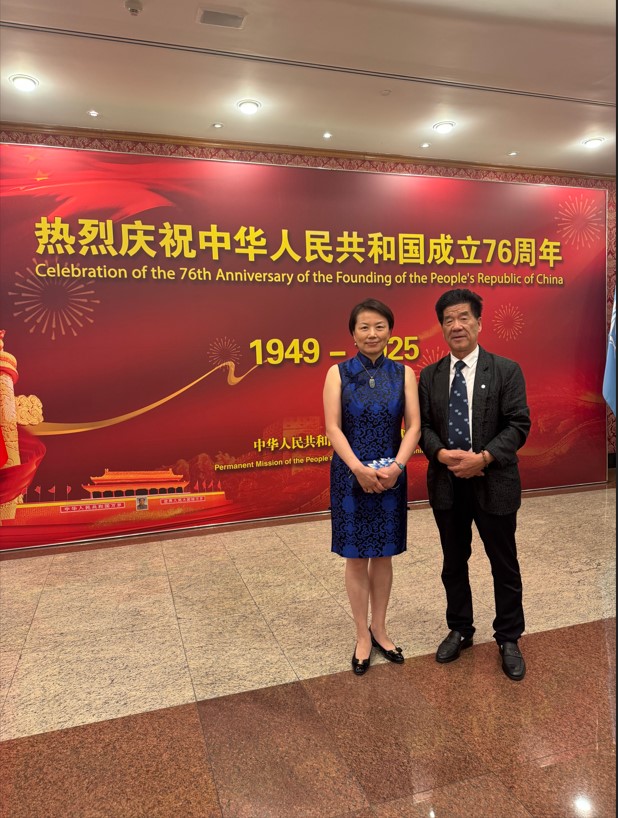
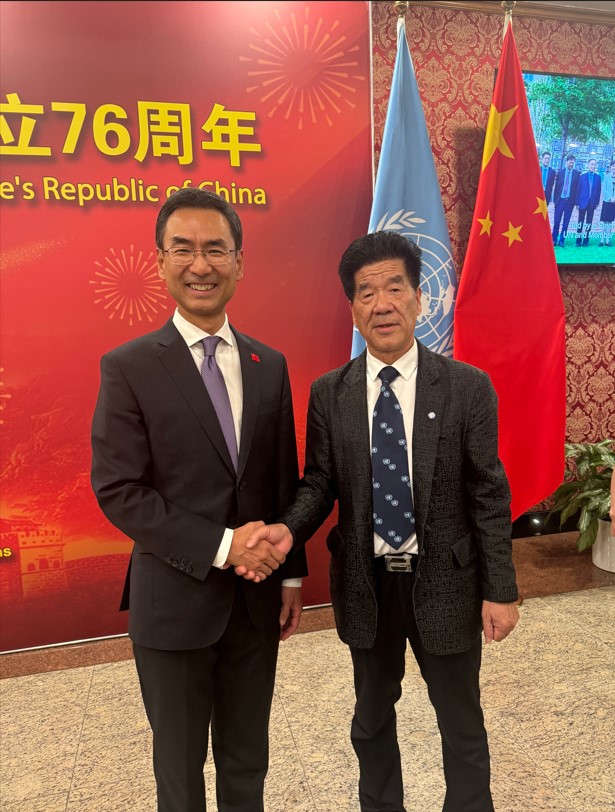
Great Power Demeanor and Cultural Confidence: At the reception, Ambassador Fu Cong emphasized the extraordinary journey of China over 76 years, noting that the great rejuvenation of the Chinese nation has entered an irreversible historical process, and that China demonstrates “what a great power looks like” through concrete actions. This demeanor is not only reflected in economic development and international initiatives but also in the confident expression of cultural soft power. The appearance of the calligrapher was a tangible manifestation of this cultural confidence—it showcased China’s civilizational depth to the world and added warmth and sincerity to the diplomatic occasion.
Representatives of various countries and UN officials expressed their blessings and praise for China. They not only recognized China’s development achievements but also felt the charm of cultural exchange through interaction. Calligraphy works became topics of conversation and opportunities for friendship. The power of cultural diplomacy is evident on the stage of global governance—while hard power is important, the role of soft power should not be underestimated. Culture is a silent force that can transcend barriers of language and politics, touching hearts. Li Guiming’s character Fu symbolizes this power, reminding the world that on the path to common development, cultural exchange and understanding are indispensable bonds.
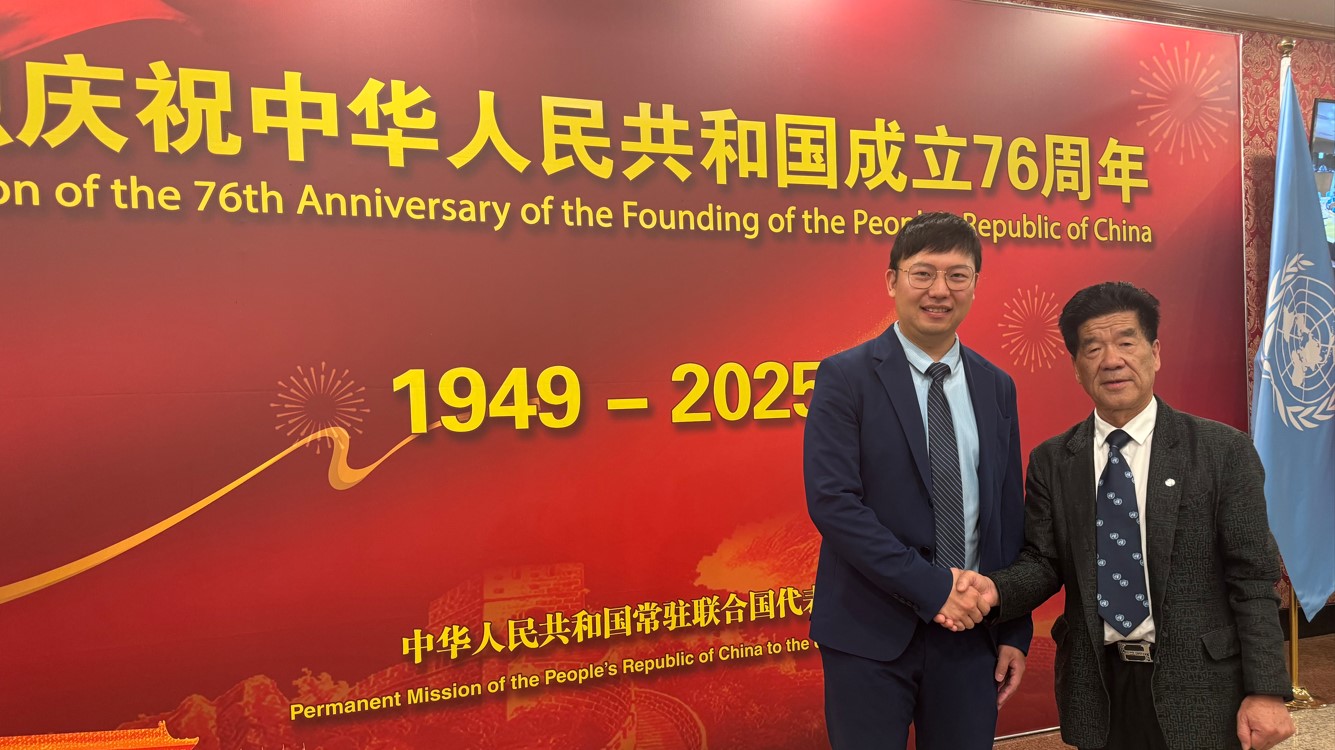
From this National Day Reception, it can be seen that China not only participates in global governance through economics and politics but also enriches international engagement with the soft power of culture. Amidst the scent of ink and laughter, the spiritual imprint of Chinese civilization quietly spreads, giving concrete expression to the concept of a “community with a shared future for mankind.” Calligrapher Li Guiming’s work added a cultural highlight to the National Day Reception, while Ambassador Fu Cong’s speech infused this highlight with the perspective and responsibility of a great power.
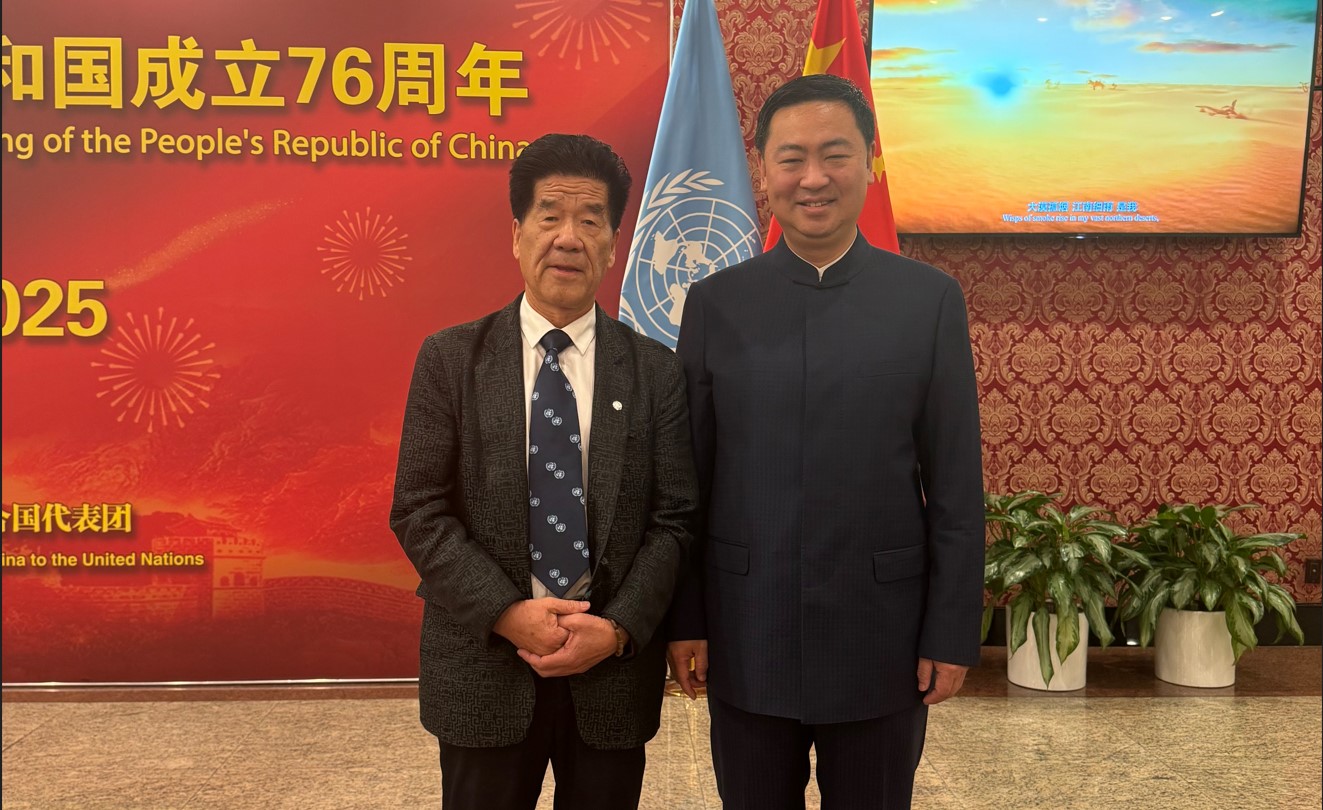
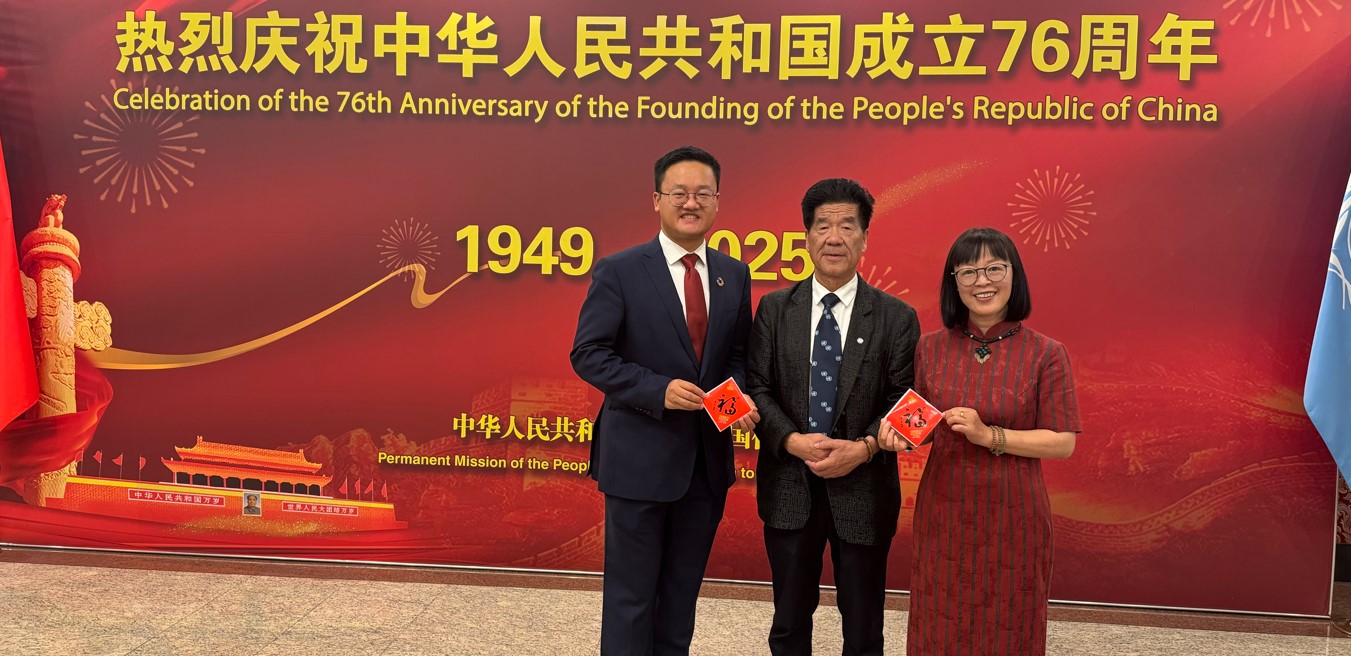
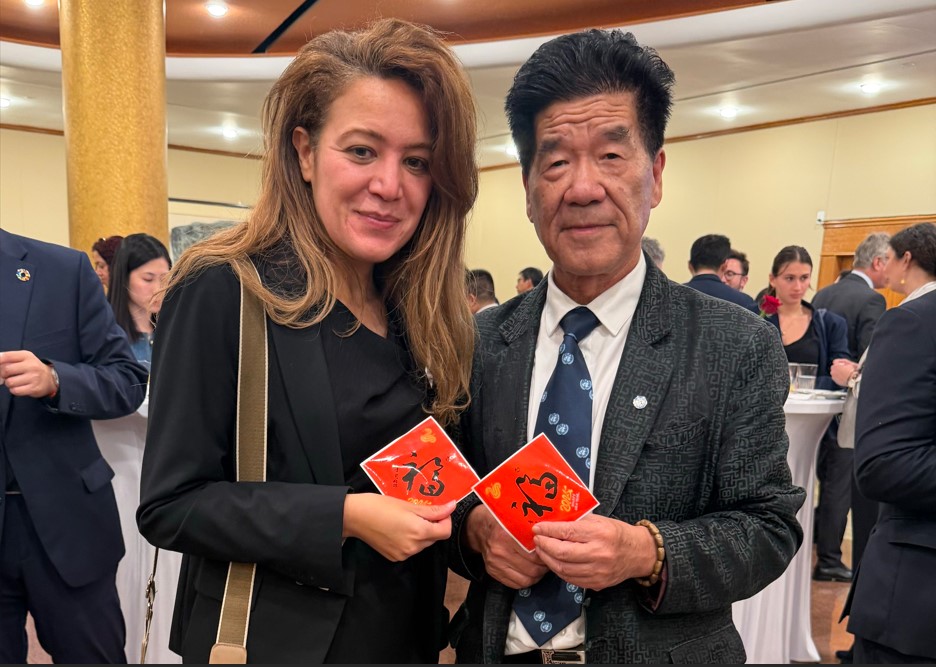
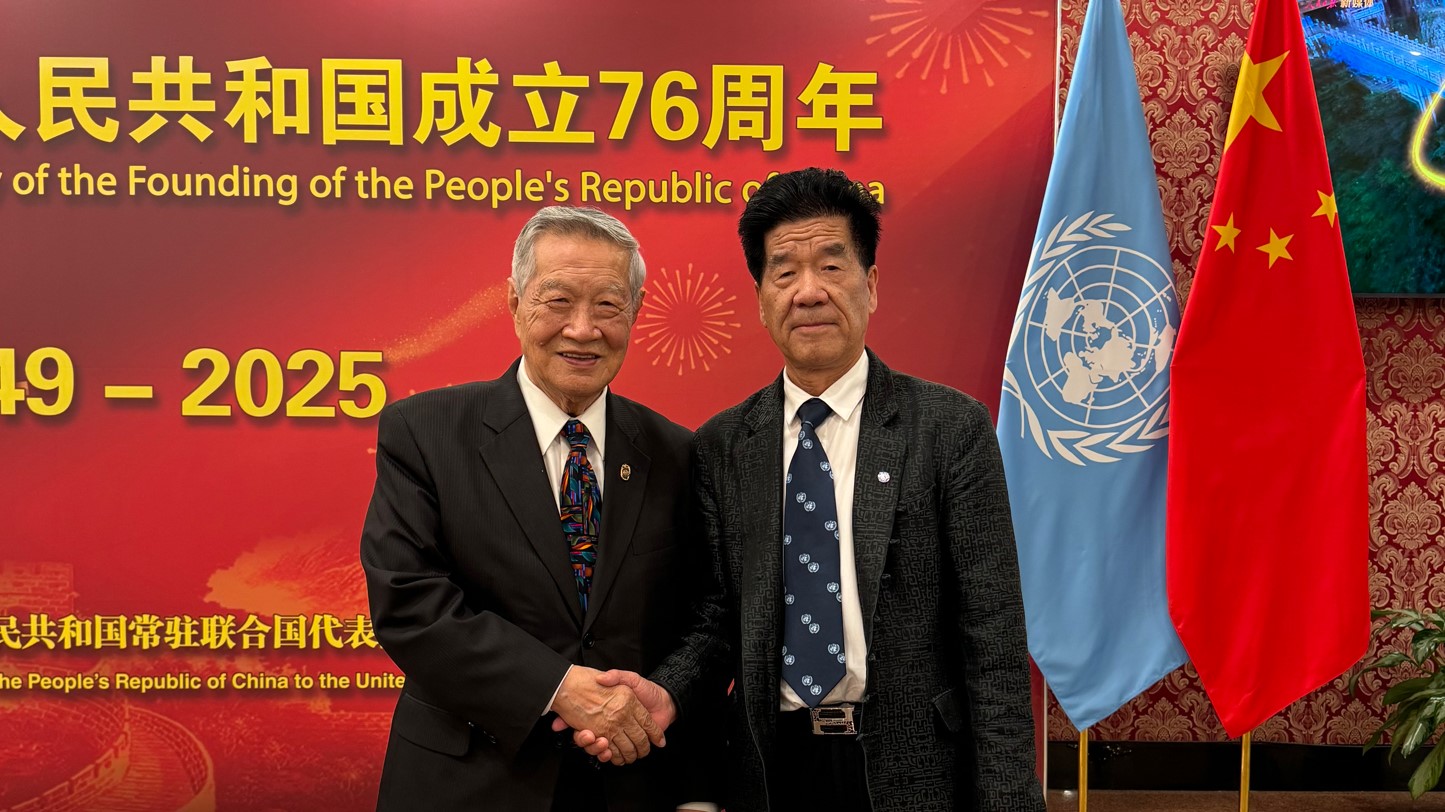
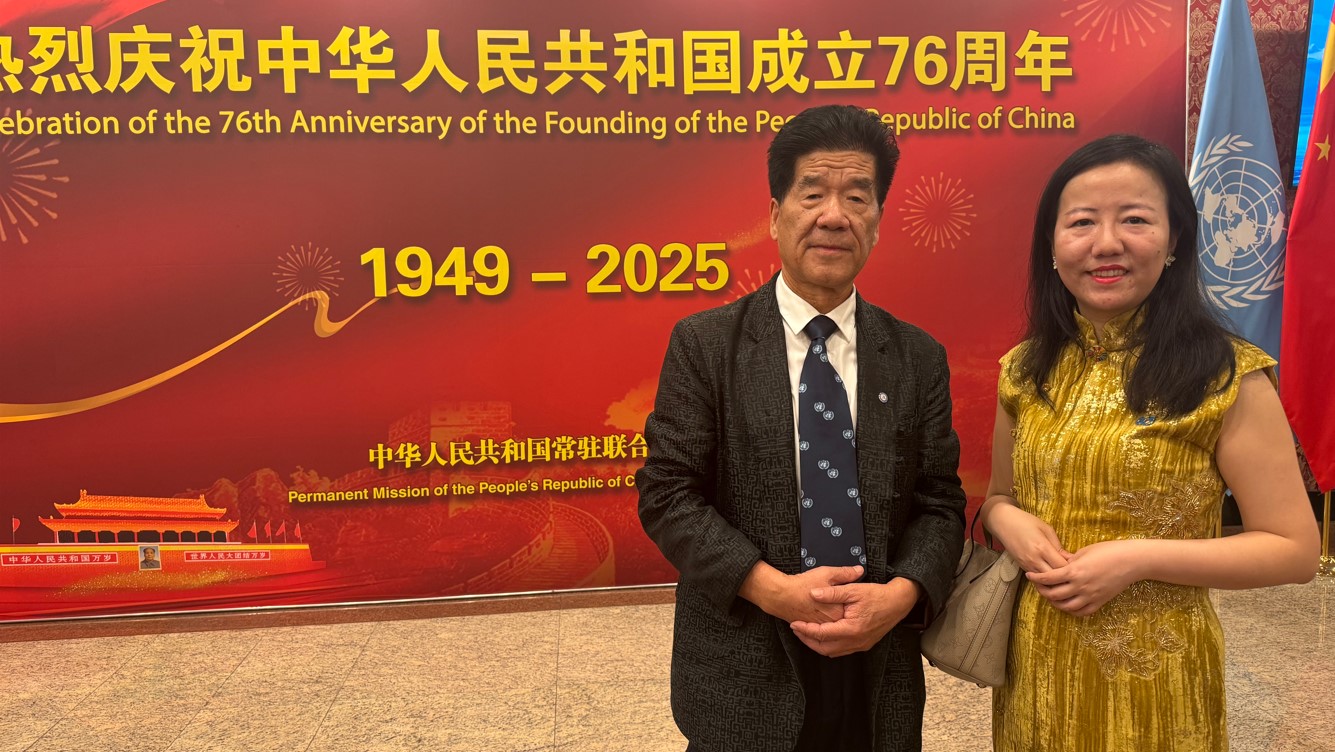
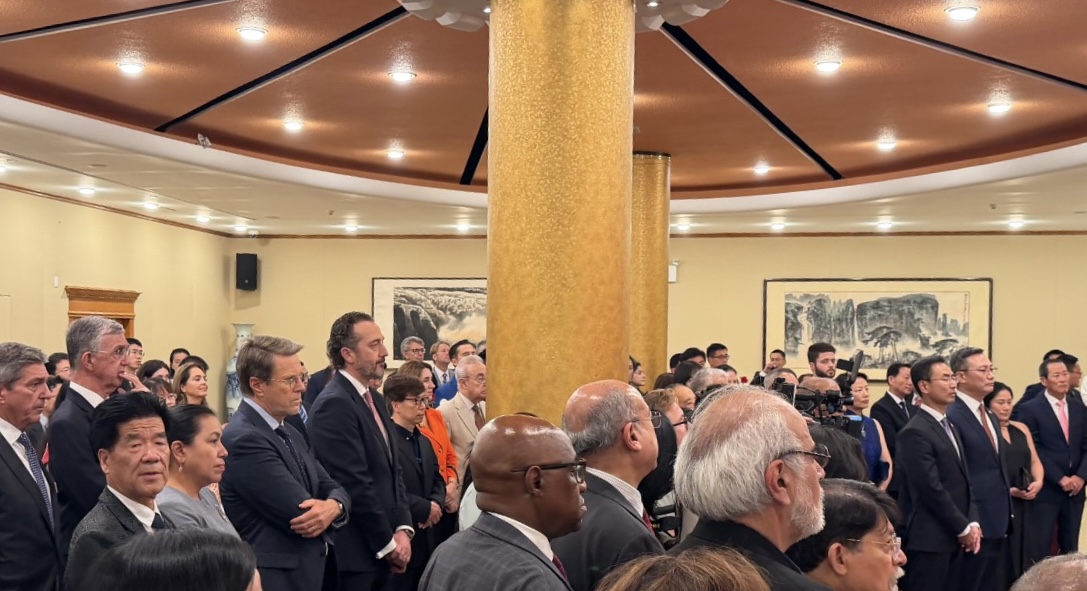
The integration of art and diplomacy highlights China’s multidimensional image on the international stage: not only as a promoter of development but also as a disseminator of culture. The calligraphy Fu is no longer just China’s blessing, but has crossed mountains and seas, becoming a shared wish for all humanity.
